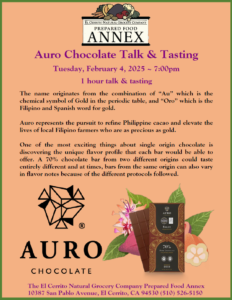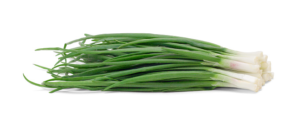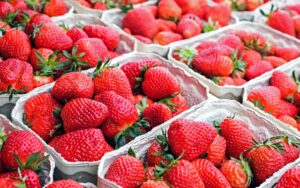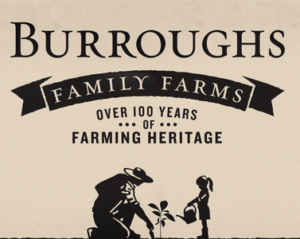Auro Chocolate Talk & Tasting at The Annex – Tuesday, February 4, 2025
Calling all chocolate connoisseurs!
Join us for a talk and chocolate tasting of Auro Chocolate on Tuesday, February 4, 2025, with a presentation at 7:00pm at the Natural Grocery Company Prepared Food Annex, 10387 San Pablo Ave., El Cerrito, CA 94530 (510) 526-5150. There is not a charge for this event.
Auro Chocolate is an internationally awarded tree-to-bar chocolate brand that promotes sustainability by working directly with local farmers to create fine Filipino cacao beans, ingredients and retail products with unique and bold tropical flavors.
This event will include a tasting of samples.
Learn about sourcing, processing and quality!
Organic Green Onions 99¢ per bunch
Greens onions are also known as spring onions, scallions, or salad onions. Green onions are actually baby, immature onions that are picked before they fully grow. The bulb is younger and is cut while the tops are still green. They have tiny white or pale-green bulbs at the end of long green tops. There are slight age differences and bulb types between scallions and green onions, but they are often considered the same vegetable.
Select green onions with white to pale green bulbs. Look for undamaged, unwilted tops. The tops should be bright green and about 8 inches long. When selecting green onions, be sure to look for crisp, firm bulbs.
Store green onions in cool moist areas in the refrigerator, preferably the crisper or vegetable drawer (32-36 degrees F). Scallions will last between 3 and 4 weeks if stored properly.
- Great source of vitamin C, beta-carotene, and folate—even more than mature onions.
- Good source of calcium.
Organic Open Pint Strawberries
Farmer Profile – Esteban Martinez
Have you tried the open pint strawberries recently? We’re sourcing them from Esteban Martinez of JW Farms and they are really, no REALLY, great tasting!
Farmer Esteban Martinez grows organic strawberries on 21 acres in coastal Monterey County. He’s been farming for 20 years and in 2017 purchased the land where he currently farms. The rolling hills and sandy soils make the landscape prone to erosion particularly during heavy rains.
To mitigate this erosion, improve soil health and increase biodiversity on his farm, Esteban has successfully planted a hedgerow along two edges of one 14- acre field including natives like ceanothus, coffeeberry, coyote brush and toyon. Esteban is working to extend the hedgerow and incorporate edible trees like mulberry and elderberry. The perennial hedgerows contribute to soil health by covering the surface of the soil, reducing wind and water erosion, and establishing deep roots that promote water infiltration and carbon storage.
As an ambitious and strategic farmer, Esteban is working to establish a farmer cooperative with other regional growers.
You will often see their packed strawberries in pressed card containers. Remember, you don’t have to take the plastic open pint baskets if you don’t want to and honestly your strawberries will arrive home in better condition if you do. You could bring your own container and leave the plastic basket behind or return the clean basket on your next visit and we’ll take care of repurposing it.
Enjoy!
March is Fairtrade Banana Month
Choosing Fairtrade makes a difference!
In March we are featuring Fairtrade Bananas for $0.99/lb
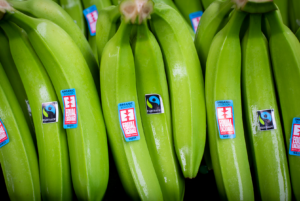 Photo courtesy of Equal Exchange
Photo courtesy of Equal Exchange
- Fairtrade banana producers are paid a Fairtrade Minimum Price that acts as a safety net against falling prices. This price varies by region, factoring in local conditions and aiming to cover the average costs of sustainable production.
- Plantation workers and small-scale banana farmers also receive a Fairtrade Premium – an extra sum of money that farmers and workers invest in business or community projects of their choice. Banana workers have often used the Premium to improve their housing, build schools and clinics, or offer other benefits they see a need for.
- The Fairtrade Standards are designed to improve employment conditions and protect the rights of workers in the large plantations where the majority of export bananas are grown. In recent years Fairtrade has undertaken pioneering work to define and progress toward living wages for banana workers.
- For smallholder farms, Fairtrade supports these banana growers to improve their income and their bargaining position in banana supply chains that are often dominated by larger entities.
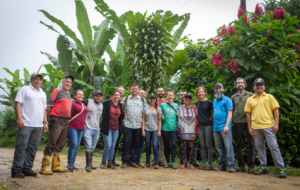 Photo courtesy of Equal Exchange
Photo courtesy of Equal Exchange
Season: Bananas are grown in tropical areas and can produce nearly year-round, so seasonality is not particularly relevant to the fruit. Bananas are not grown in California.
Flavor: The flavor changes as they ripen. Green bananas are more starchy, very firm and less sweet. As they ripen the taste has been described as having melon, pineapple, candy and clove flavor notes. Yellow bananas have higher sugar concentrations and therefore taste sweeter. Finally, when the peel has become brown, the banana contains notes which are reminiscent of vanilla, honey and rum and the texture is very soft.
Storage: Ripen green bananas on the counter. You can also store them on the counter – but note that they will continue to ripen, and sometimes quickly, depending on how warm it is. If they are too green for you then put them in a plastic bag with an apple to help ripen them.
You can also use bananas’ ethylene gas to your advantage: to ripen a hard avocado overnight, stick it in a paper bag with a ripe banana. The banana’s ethylene gas will work its magic on the avocado, making it perfectly ripe and ready for your next batch of guacamole.
How to use: The most common way to eat bananas is of course, out of hand. But they’re also used for a variety of sweet and savory dishes. Very ripe bananas are perfect for baking in dishes such as Banana Bread.
Bananas freeze beautifully — just peel them and stick them in a zip-top bag for use in smoothies or banana ice cream. If you’re going to freeze them, go one step further and make chocolate covered bananas for an instant dessert.
Nutrition: Bananas are really, really good for you! One medium-sized banana will give you about 12 percent of your daily fiber needs, plus lots of Vitamin C, Vitamin B6, potassium and manganese. Bananas even have a bit of protein, iron and calcium.
Our stores only carry organic produce!
Thank You Marin Cheese Company!
Marin Cheese Company is a distributor that brings us specialty cheeses. They are one of our 40th Anniversary sponsors and in every raffle tote there is a coupon for organic Montchevre Goat Cheese redeemable in our stores.
The Montchevre goat cheese they have donated is from Wisconsin. Milk is their primary ingredient and they care deeply about the way it is produced. High quality dairy products begin with high quality milk from healthy and well cared-for animals. Montchevre is committed to supporting initiatives and programs that promote communication, awareness and training opportunities for dairy production welfare issues. They offer organic goat cheese logs in plain and garlic/herb.
Thank You Burroughs Family Farms!
Pachamama Coffee of the Month: Mexico
Mexico happens to be Pachamama’s coffee of the month, and since September marks the beginning of National Hispanic Heritage Month, we thought sharing this blog would be helpful, informative, and provide a new perspective about coffee’s wonderful, labor-love journey from seed to cup.
We present Pachamama’s latest Blog, Journey to the Origin. Their Creative Director, Rosa, recounts her discovery of coffee’s incredible journey from seed to cup while visiting one of Pachamama’s owner cooperatives: La Union Regionnal Cooperative, in Veracruz, Mexico.
We hope you find the time to read about her experience. It’s a short read that demonstrates how Pachamama Coffee is one of the most sustainable coffees the Natural Grocery can offer our customers. It is available in our El Cerrito Store.
Citrus Season!
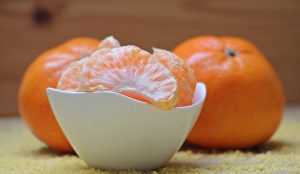
Satsuma [sat-SOO-muh] – A loose-skinned, typically seedless, member of the orange (citrus) family.
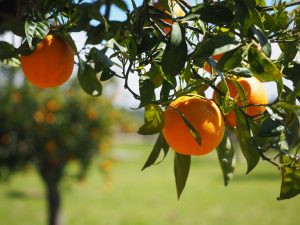
Satsumas have a sweet/tart flavor and suprememely refreshing juice. With its smooth, thin, lightly attached skin, satsumas are wildly popular at this time of year.
History: Satsumas may have originated in China but they were first reported in Japan more than 700 years ago.
The ‘Owari’ Satsuma arrived to the United States from Japan, first in 1876 and next in 1878. During the period 1908-1911, nearly a million budded trees from 1908 to 1911 for planting in the Gulf States. The first recorded introduction into the United States was in Florida by George R. Hall in 1876. The name “satsuma” is credited to the wife of a United States minister to Japan, who sent trees home in 1878 from a place that was then called, Satsuma, on the southern tip of Kyushu Island, where it is believed to have originated.
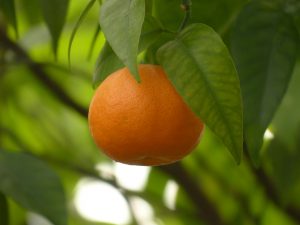
For the next couple months we will be introducing seasonal citrus varieties to our stores on a regular basis. Please swing by our Produce Department, enjoy a tasty sample and experience how amazing California citrus can be when grown organically and harvested at perfect ripeness!
Look out for Satusumas grown by these wonderful farms:
Beck Grove
Serendipity Farms
Capay Organic
Extra Virgin Olive Oil – Burroughs Family Farms
Burroughs Family Farms – Extra-Virgin Olive Oil
We recently started selling Burroughs Family Farms organic, non-GMO, cold-pressed extra-virgin organic olive oil [aka EVOO]. This exemplary family-owned farm, situated in the Sierra foothills below Yosemite, is one of our favorite regional producers. We already source quality pastured eggs, organic cheese, and almonds from their property. The Burroughs Family Olive Oil is a blend of Arbeqina, Arbosana and Gretchenina olives (originally from Spain). The oil has a pleasant fruitiness with hints of grassy undertones. It is very versatile and may be used in sauces, salad dressings, as a topping to bread and for low heat cooking.
Here is what Burroughs Family Farms says about their oil:
Our olives are first cold-pressed at temperatures that do not exceed 80 degrees F. This protects the polyphenols, antioxidants, and vitamins that give the oil its nutritional value and its aroma and flavor.
Why extra-virgin olive oil?
- EVOO is known to contain stronger concentrations of phytonutrients (especially polyphenols) that have well-known anti-inflammatory properties
- EVOO supports blood vessels not only by providing antioxidants like vitamin E and beta-carotene, but also also providing unique molecules like HT that actually work at a genetic level to help the cellular walls of the blood vessels remain strong.
- Cholesterol lowering and blood pressure lowering benefits of monounsaturated oil (olive oil contains 75%)
High quality extra virgin olive oil has a smoke point of around 405ºF (191ºC), making it ideal for lower temperature cooking such as light sautés and non-cooked uses such as dressing salads and dipping bread. Such uses protect the nutritional value and beneficial qualities of the oil.
Why California Olive Oil?
As with wine, it has taken years for people to discover that some of the world’s finest olive oils are produced in California. Our family owned and operated farms rest on the rolling hills near Yosemite National Park, where the combination of the moderate Mediterranean climate with good soils and water grows some of the world’s finest quality olives.
Buying California olive oils vs. imports supports our farm economy, and California olive oils have a lower carbon-footprint because their shipping distance is much shorter than that of imports.
Conservation on our farms
Ours is not the easiest way to grow olives, but we think it’s best for our land and for our family who lives and works here. From organic production to state-of-the-art irrigation systems, we do whatever we can to protect air, soil, and water from herbicides, pesticides, petrochemical nitrogen fertilizers, and genetically-modified organisms. All that, plus our hedgerows of native plants support the health of native species and bees who have the most important job – the pollination of the olive flowers.
We do it for the future of our farms. For you, it’s deliciousness and more.
Burroughs Family Olive Oil is certified annually by the California Olive Oil Council (COOC). Year after year it’s labeled “extra-virgin” by the council. To get the seal the oil is lab tested and 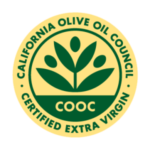 undergoes a critical analysis by an expert panel. The trained sensory panel (think of these people as the sommeliers of olive oil) ensure that the oil is free of defects in flavor or odor. In the U.S., many oils are labeled “extra-virgin” but do not undergo any such testing.
undergoes a critical analysis by an expert panel. The trained sensory panel (think of these people as the sommeliers of olive oil) ensure that the oil is free of defects in flavor or odor. In the U.S., many oils are labeled “extra-virgin” but do not undergo any such testing.



